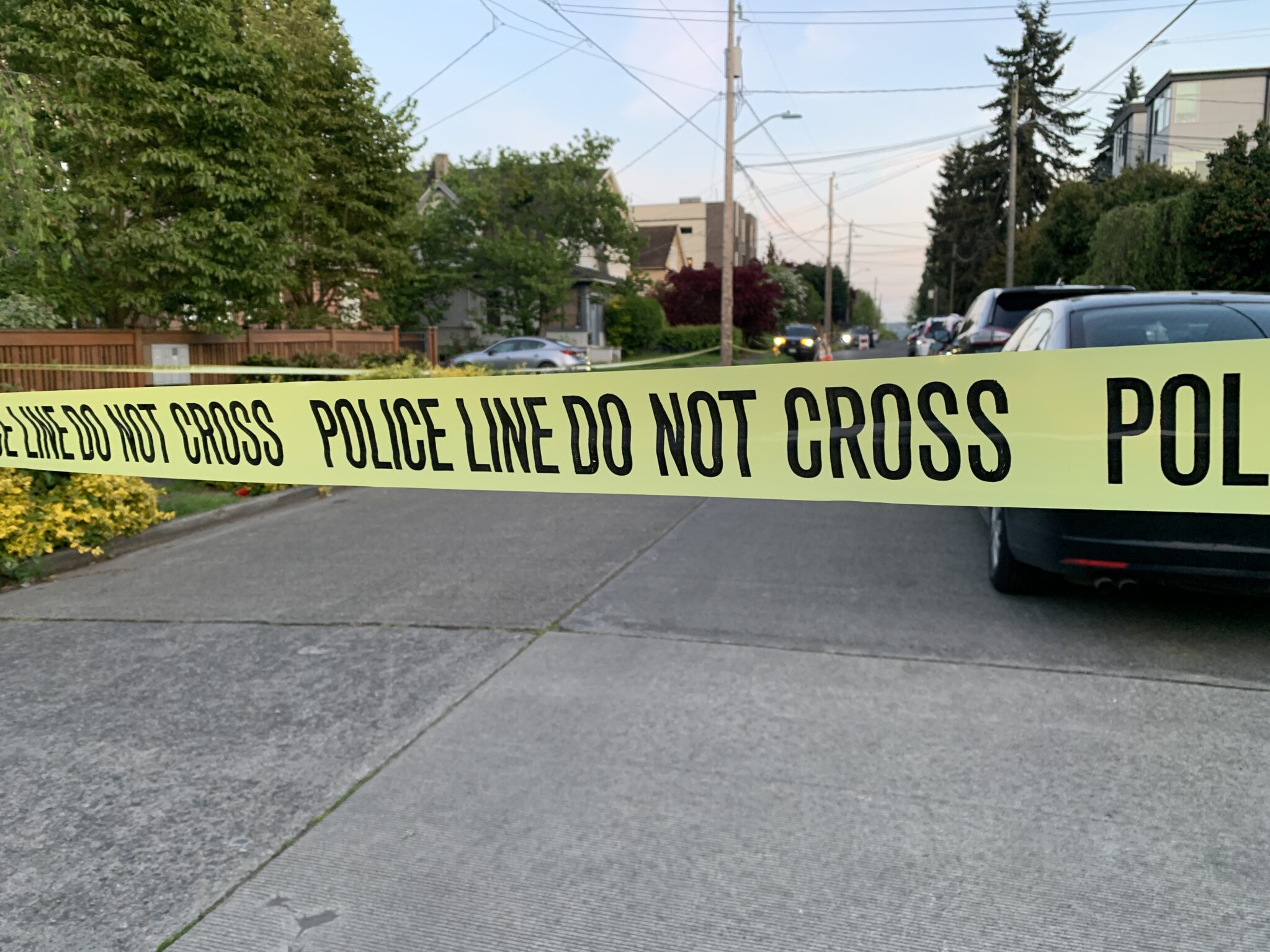New Mexico
Deepfake disclosure bill passes NM House – Source New Mexico

A proposal to require public disclosure whenever a political campaign in the state uses false information generated by artificial intelligence in a campaign advertisement gained approval from the New Mexico House of Representatives on Monday night.
After about an hour of debate, the House voted 38-28 to pass House Bill 182, which would amend the state’s Campaign Reporting Act to require political campaigns to disclose whenever they use artificial intelligence in their ads, and would make it a crime to use artificially-generated ads to intentionally deceive voters.
The bill’s latest version passed by the House specifies the disclaimer’s exact wording that must be present when AI is used for any campaign material. That disclaimer must read, “This (image/video/audio) has been manipulated or generated by artificial intelligence.”
To become law, HB 182 would still need to go through the committee process in the Senate, then a full Senate vote before the session adjourns at noon on Feb. 15. Then it would need to be signed by Gov. Michelle Lujan Grisham.
The bill would not entirely prohibit using artificial intelligence in campaign ads, however.
Candidates running for office in New Mexico must disclose whenever they knowingly publish a deceptive ad within three months of an election with the intent of changing voters’ behavior. If they don’t, the proposal would make publishing the ad a misdemeanor and penalties would increase for additional violations.
HB 182 got the go-ahead from the House Government, Elections and Indian Affairs Committee on Jan. 31. Eight days later, the House Judiciary Committee amended the proposal to further narrow the crime it creates to exclude things like media coverage of fake ads.
The committee clarified platforms like a radio station, newspaper, Facebook or Google would not violate the law if they publish, post or distribute fake ads so long as they tell the ad’s creator about the disclaimer requirement. House Majority Floor Leader Gail Chasey (D-Albuquerque), the bill’s sponsor, said that change came after she spoke to representatives from Google about the bill.
“The distributor, if you will — whoever is putting this together professionally — just has to have a policy that reflects our law, letting its customers know that this is not allowed,” Chasey told the House. “If the individual doesn’t follow the policy that the platform has adopted, then it’s the individual who is liable if they don’t follow the law.”
It’s not up to the platform to police ads, Chasey said, but rather the person harmed by the ad must complain to the New Mexico Secretary of State’s Office, which would then either refer the issue to the state Ethics Commission or the New Mexico Department of Justice.
The Ethics Commission can also bring their own case against someone under the Campaign Reporting Act, she said.
The version amended out of the Judiciary Committee also requires the disclaimers be in the same language as the ad itself, such as Spanish or Diné, she said.
Rep. James Townsend (R-Artesia) asked if it would have been easier to simply eliminate the use of AI in campaign ads altogether but Chasey said no, because that would violate the First Amendment right to free speech.
“It just seems like we are setting up a very slippery slope for anyone who uses information that they may gather off of the web,” Townsend said. “It’s going to cause a lot of problems and most of the things that will be accused of being wrong, the election will be long gone and over, the damage will be done, before this is ever decided.”
If someone uses AI to depict someone doing something they didn’t actually do, what’s called a “deepfake,” then there must be a disclaimer, Chasey said.
“We’re not saying you can’t say it,” she said.
At least four other states including Michigan have passed similar legislation, Chasey said. Other states have tried to address deepfakes in different ways, she added.
Over half the states in the country are considering similar legislation, according to a bill tracker run by Public Citizen, a consumer advocacy group that supports Chasey’s bill.

New Mexico
7-day waiting period to buy firearms in New Mexico to begin next week
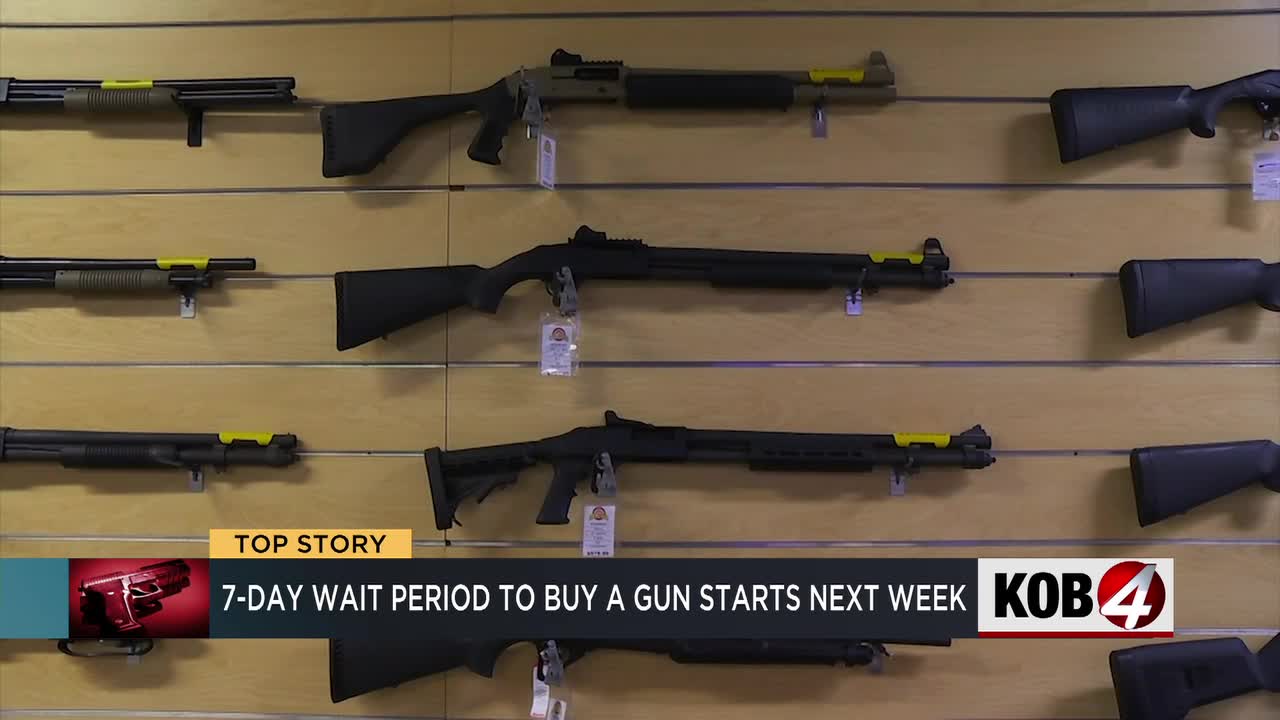
A mandatory seven-day waiting period to buy guns in New Mexico goes into effect in exactly a week, on May 15.
SANTA FE, N.M. – If you want to buy a gun in New Mexico there will be a mandatory seven-day waiting period that goes into effect next week.
New Mexican Republicans tried to file a referendum to let voters decide if they wanted that week-long waiting period, but our Secretary of State Maggie Toulouse Oliver said “No.”
Sen. Craig Brandt pushed for the referendum. He says the rejection is a direct hit on New Mexicans’ constitutional rights.
“We hear the Democrats all the time talking about democratic process and democracy and how Trump’s ruining democracy, or how the Republicans are ruining democracy. Well, and the fact of the matter is, in this situation, our Secretary of State is the one that’s keeping people from having a right to vote on this bill,” said Brandt.
Secretary of State Communications Director Alex Curtas says it was rejected because, under New Mexico law, there are specific criteria for the referendum review process.
“There’s a specific exception within the law that says any law that is particularly about something to do with public peace, health, or safety is exempt from that process. So there are other laws that could go through this process. But a firearm-related law is pretty clearly about public safety and health, so it’s exempted from that process,” said Curtas.
But Brandt disagrees and argues a waiting period isn’t about public safety.
“She’s just automatically rejected it saying it’s about public safety, peace, welfare. Nothing about this was public safety. There’s not a single shred of evidence, there’s not a single study that shows that a seven-day waiting period will make the community any safer, or has in any other state that it’s already being done. So, you know, she just kind of uses that as her catch-all,” Brandt said.
Brandt says the next step would be to file a federal lawsuit. But, right now, there are no plans to take that type of action.
Another option would be reviewing New Mexico’s Constitution.
“If there is a change in the law that broadens the scope of what laws are allowed to be subject to the referendum petition process, you know, that would be the will of the Legislature and the people presumably. And so we would just, you know, follow that guidance and those steps if those were in place. But the Secretary of State at this point is just following the law as it’s written,” said Curtas.
Gov. Michelle Lujan Grisham signed House Bill 129 into law back in March. It goes into effect May 15.
According to the governor, that’s double the current waiting period required by the federal government. The sale of a firearm without the waiting period or before those seven days are up would become an unlawful sale.
New Mexico will join at least 12 other states when HB 129 goes into effect May 15.
The other measure Lujan Grisham signed in March bans guns from polling locations. Firearms wouldn’t be allowed within 100 feet of polling places and ballot drop boxes. There are exceptions for law enforcement and concealed carry permit holders.
MORE:
New Mexico
Sinkhole in New Mexico, firefighters rescue golf clubs – KYMA
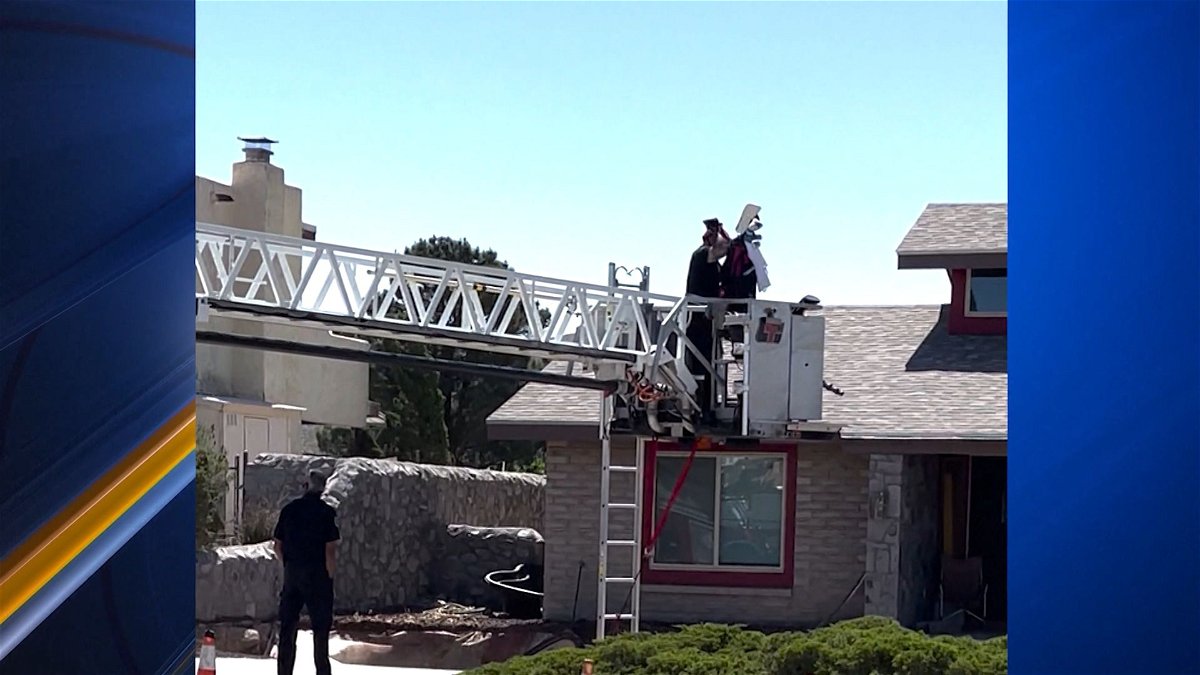
LAS CRUCES, N.M. (NBC, KYMA/KECY) – A large sinkhole swallowed two cars in front of a home in Las Cruces, New Mexico Monday.
The sinkhole is said to be about 30-feet wide and 30-feet deep.
The dangerous situation forced officials to evacuate the home, as well as nearby residents. The street is also closed to traffic until experts can determine the cause of the sinkhole.
One bright spot from this incident: Firefighters were able to rescue a set of golf clubs and a cart for a high school student who is set to compete in the state championships. Her clubs were trapped in one of the cars at the bottom of the sinkhole.
The firefighters figured out how to reach the car and pull the clubs from the hazard, teeing up the student’s chance to take a swing at a state title.
Now that’s a hole-in-one for those brave firefighters.
KYMA KECY is committed to providing a forum for civil and constructive conversation.
Please keep your comments respectful and relevant. You can review our Community Guidelines by clicking here
If you would like to share a story idea, please submit it here.
New Mexico
House Speaker Mike Johnson called on to pass nuclear weapons reparations for New Mexicans
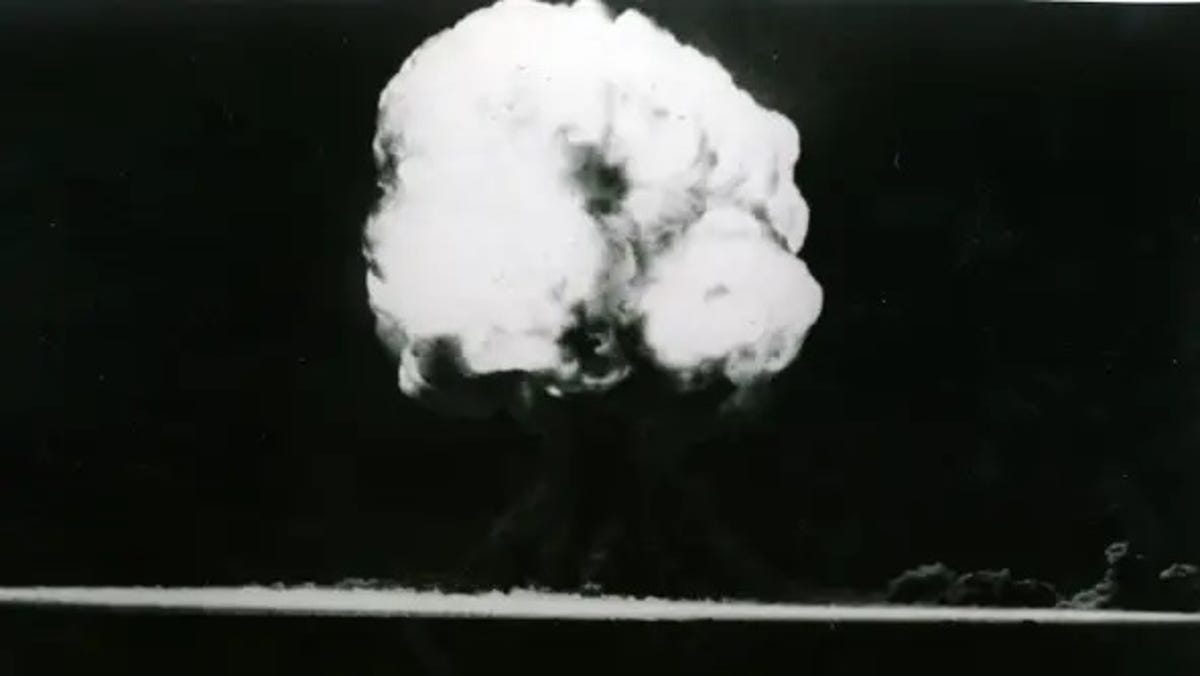
From Margot Robbie to Tom Cruise, the ‘Barbenheimer’ fever is building
With two big films, “Barbie” and “Oppenheimer,” hitting theaters, moviegoers and stars are opting for the “Barbenheimer” double feature.
Entertain This!, USA TODAY
Reparations for New Mexicans impacted by nuclear weapons testing could be held up in the GOP-led House of Representatives after the U.S. Senate passed a bill in March to provide payments to those suffering health impacts tied to the tests.
The U.S.’ first nuclear bomb was tested in New Mexico in 1945 at the Trinity Site near Alamogordo, setting off a generational wave of cancers and other health impacts for nearby residents. The Radiation Exposure Compensation Act (RECA) passed in 1990 to fund federal payments to those who could prove their health was impacted by weapons testing but did not include reparations for New Mexicans near the Trinity Site.
That could change thanks to legislation sponsored by U.S. Sen. Ben Ray Lujan to expand RECA to include New Mexico residents near the test, known as “downwinders.” The law currently provides payments to downwinders of the Nevada Test Site in multiple states.
After passing the Senate, supporters of the bill urged the U.S. House and Speaker Mike Johnson (R-LA) to take up and pass the measure before the law’s funding sunsets in about a month on June 7.
Lujan, along with Sen. Martin Heinrich (D-NM) and several other members of the chamber including GOP senators along with U.S. Reps. Teresa Leger Fernandez (D-NM) and Melanie Stansbury (D-NM) and members of the House, penned a letter to Johnson demanding the bill be moved on to President Joe Biden’s desk to become law.
The letter pointed to the Oscar-winning film “Oppenheimer” released in July 2023 about the events at Trinity to show an increased awareness for the test and its potential impacts on the New Mexican people.
“The landmark film Oppenheimer has brought renewed attention to these events, particularly highlighting the first nuclear explosion in New Mexico in 1945,” the letter read. “The ‘downwinders,’ along with those involved in uranium mining, milling and transportation, are still enduring the health impacts from their exposure to this radiation.”
The lawmakers argued the nuclear test exposed nearby residents to radiation, creating illnesses passed through generations that many are still struggling with today.
“Their livelihoods, often devastated by the long-term consequences of radiation exposure, depend on your leadership and commitment to rectifying past injustices. Let us honor the commitment we made to these citizens by ensuring they receive the support and recognition they so rightly deserve,” read the letter.
More: US Senate OKs funding bill for New Mexicans impacted by Trinity Site
GOP bill extends but does not expand nuclear testing reparations
A Republican-led bill sponsored by Sen. Mike Lee (R-Utah) was introduced in April to extend the RECA program for two more years but did not add language to allow New Mexicans to receive payments or expand the program to any other communities.
“When the government harms people, victims should be able to receive compensation. Downwinders and others harmed by the nation’s early atomic program often suffer the consequences of exposure decades after the fact,” Lee said in a statement.
The omission of New Mexico downwinders was a sticking point for the Union of Concerned Scientists. The national organization called Lee’s bill a “slap in the face” to downwinders in New Mexico and other states impacted by nuclear testing.
“I would ask Senator Lee: how do we decide who deserves to be taken care of and who doesn’t? Who gets to make these decisions? Why are people in certain zip codes considered more important than others?” said Tina Cordova, founder of the New Mexico Downwinders Consortium and a native of Tularosa.
She said it was Congress’ and the federal government’s duty to repay New Mexicans and other impacted for the health of affects of nuclear weapons in the U.S.
“We urgently need for our government to take responsibility for the egregious harm that was done to American citizens, including children, when nuclear testing was taking place in the American west and the Pacific,” Cordova said.
“Not only did that testing negatively affect the health of those alive at the time, it destined our children and grandchildren forevermore to a life never free of the genetic damage associated with our overexposure to radiation. I can think of no other act that is more immoral than this.”
Adrian Hedden can be reached at 575-628-5516, achedden@currentargus.com or @AdrianHedden on the social media platform X.
-

 Politics1 week ago
Politics1 week agoStefanik hits special counsel Jack Smith with ethics complaint, accuses him of election meddling
-

 Politics1 week ago
Politics1 week agoThe White House has a new curator. Donna Hayashi Smith is the first Asian American to hold the post
-

 Politics1 week ago
Politics1 week agoAnti-Trump DA's no-show at debate leaves challenger facing off against empty podium
-

 News1 week ago
News1 week agoAs student protesters get arrested, they risk being banned from campus too
-

 News1 week ago
News1 week agoVideo: Police Arrest Columbia Protesters Occupying Hamilton Hall
-

 World1 week ago
World1 week agoNine on trial in Germany over alleged far-right coup plot
-

 Politics1 week ago
Politics1 week agoNewsom, state officials silent on anti-Israel protests at UCLA
-

 World1 week ago
World1 week agoStrack-Zimmermann blasts von der Leyen's defence policy

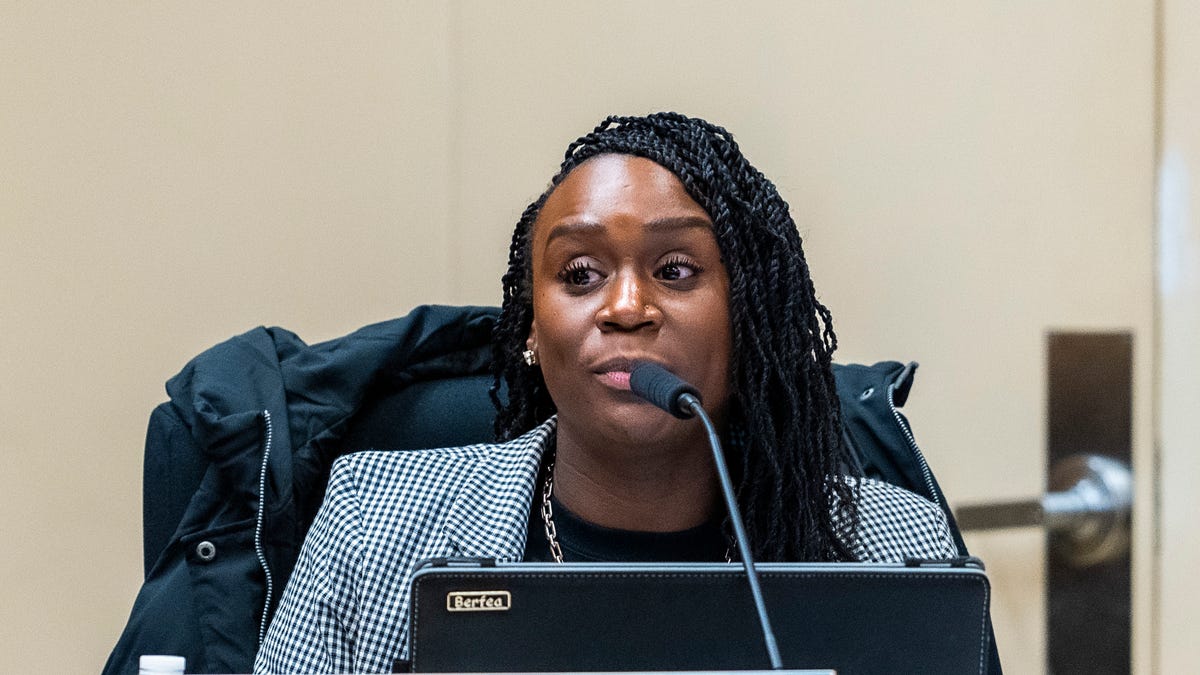
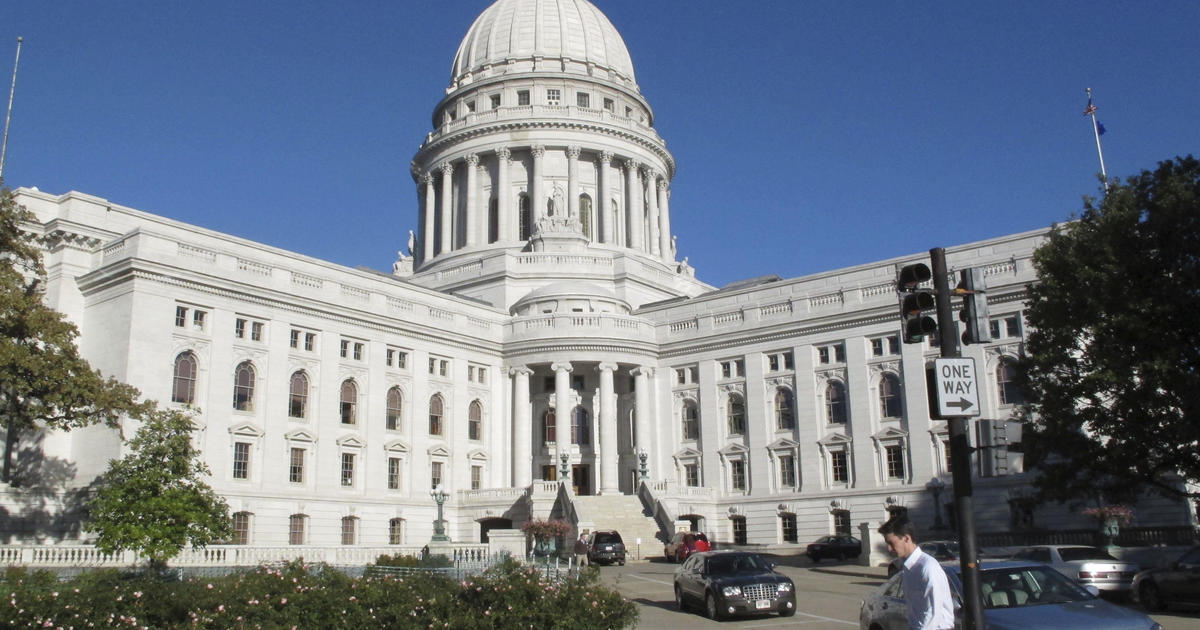




/cdn.vox-cdn.com/uploads/chorus_asset/file/24125939/intel_13900k_tomwarren.jpg)








